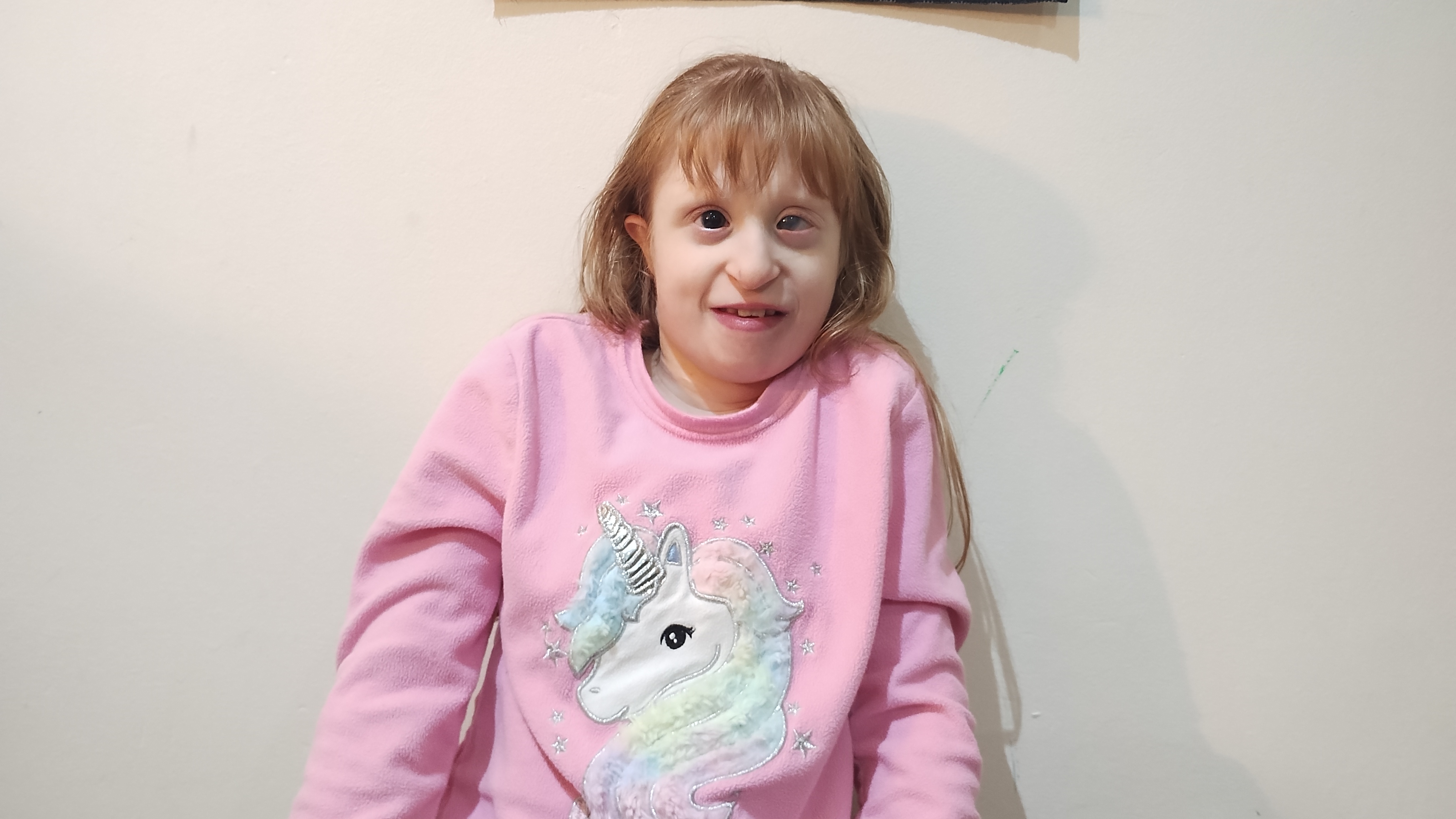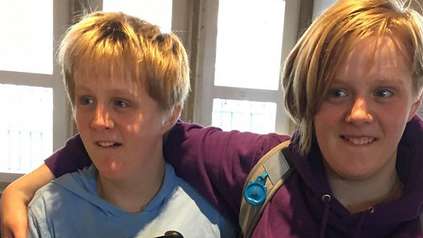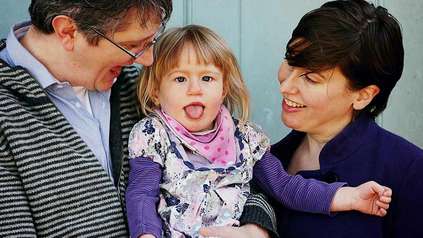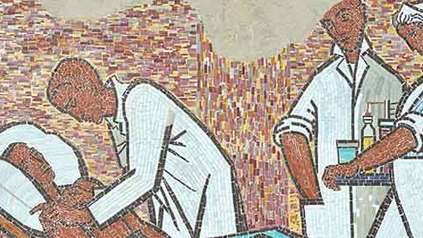Large-scale study of children with genetic disorders finds huge benefit of diagnosis
Listen to this news story:
Listen to “Large-scale study of children with genetic disorders finds huge benefit of diagnosis” on Spreaker.
Thousands of children with severe developmental disorders have benefited from more targeted treatments and support with genetic insights from the large-scale Deciphering Developmental Disorders (DDD) study, finds a new study.
Researchers from the University of Exeter and the Royal Devon University Healthcare NHS Foundation Trust followed up on the impact of those diagnosed as part of the DDD study, a collaboration between the NHS and the Wellcome Sanger Institute. This large-scale project, which began over a decade ago, has led to life-changing diagnoses for over 5,500 families across the UK and Ireland and the discovery of 60 new genetic conditions1.
The findings, published in Genetics in Medicine Open (14 October), reveal that over a thousand of those diagnosed were able to alter their treatment or undergo further medical testing based on their genetic findings, significantly improving their quality of life.
The Deciphering Developmental Disorders (DDD) study included 13,500 families, recruited from 24 regional genetics services across the UK and Ireland. All the families had children with a severe developmental disorder, which was undiagnosed despite prior testing and likely to be caused by a single genetic change. The Wellcome Sanger Institute sequenced all the genes in the children’s’ and parents’ genomes to look for answers, a search which is still ongoing.
In this new study, researchers analysed outcomes for 4,237 of the families who received a genetic diagnosis, finding 76 per cent (3,214 people) were given condition-specific information or support. A further 28 per cent (1,183 people) of people were able to change treatment or get further medical testing because of their diagnosis. Over 20 per cent (880 people) joined patient support groups, such as Unique to connect with others facing similar challenges2.
Additionally, 143 people were able to start, stop or adjust specific therapies, which can have a major impact on quality of life, and even be lifesaving. Researchers expect this number to grow, as new genetic therapies continue to develop.
“Around 1 in 17 people are affected by a rare genetic disorder, the majority of whom are children, and making the right diagnosis is critical to getting the best treatment and care. We now have the technology to make a genetic diagnosis swiftly in around 50 per cent of people affected by rare conditions – but the challenge can be having enough data to understand each condition, as they’re so rare individually. Our study is part of global research giving answers that families need so desperately, to ensure they are on the best management pathway for them. It’s so gratifying to hear stories like Jaydi’s, where a genetic diagnosis really is life-changing. Our research will lead to more families being diagnosed as early as possible in future.”
Caroline Wright, Professor of Genomic Medicine at the University of Exeter and author of the study
“Genomic testing is enabling far more people to receive a molecular genetic diagnosis of their rare disorder. These diagnoses are a launch pad to more tailored management and treatment based on the specific genetic diagnosis. This paper studied the impact of a genetic diagnosis for patients diagnosed by the DDD study. It provides a template for improving care and support following a genetic diagnosis.”
Helen Firth, Professor of Clinical Genomics at the University of Cambridge, Honorary Faculty Member at Wellcome Sanger Institute and author of the study
“It is both deeply gratifying and sobering to understand the impact that our research has had on thousands of DDD families. We can feel proud that through the integration of the nationwide scale of the NHS and being on the cutting edge of new genomic technologies, the UK has been pioneering in the application of new genomic technologies to diagnose rare disorders. However, this study also highlights how much more work is needed to find treatments for the majority of rare disorders. Nevertheless, it is clear that even without a disease-specific therapy being available, participating families can benefit substantially from having a definitive molecular diagnosis for their child’s condition.”
Professor Matthew Hurles, Director of the Wellcome Sanger Institute and lead of the DDD study
“This study has provided so many families with an explanation for their child’s developmental delay, and has also identified numerous genes involved in causing their conditions. Many of these families have waited a long time to get this answer, and they are now able to better understand their child and their needs, enabling access to the appropriate care and support. Families are also understandably desperate for information about how their child may be affected now, and in the future, but for rare conditions such as these, there is often a complete lack of information. A vital output of the DDD project has been the collaboration with Unique to produce much-needed family-friendly patient literature, which benefits not only the project participants, but all those subsequently diagnosed.”
Sarah Wynn, Chief Executive Officer of Unique, which supports families affected by rare genetic disorders and has been involved in the DDD study from the outset
“Innovative research is vital to increasing our understanding of all illnesses, and saving lives, just like Jaydi’s. Helping people get a final diagnosis faster is one of the key priorities in the UK Rare Diseases Framework and we are continuously committed to making improvements to the health and care system for people living with rare conditions.”
Andrew Gwynne, Minister for Public Health and Prevention
Jaydi’s story:
For Lisa Hawker, a diagnosis for her daughter Jaydi’s rare genetic condition was life-saving. Jaydi, who has a rare form of dwarfism affecting just 50 people worldwide, faced numerous hospital visits and tests in her early years without answers. Enrolled in the Deciphering Developmental Disorders (DDD) study, Jaydi was eventually diagnosed with a condition that increases her risk of infections and leukaemia.
The genetic findings led doctors to recommend a bone marrow transplant and additional vaccinations to protect her health. Lisa, a single mum from Seaton, Devon, believes this diagnosis saved her daughter’s life. “Without the transplant, a simple cold could have killed her,” she said.
Jaydi is among 143 people who were able to start, review, stop or avoid specific therapies based on the genetic diagnosis, which can be lifesaving.

Jaydi today
For Lisa Hawker, the study has kept her “happy little girl” alive. Jaydi has overlapping conditions that mean she is non-verbal and has problems seeing and hearing, yet she lives life with a joyful energy. Lisa shared: “She loves singing and dancing – she really is full of life. It’s so important to progress this research, because even finding people with the same condition for support is crucial. It makes you feel less alone. And for us, it saved Jaydi’s life.”
More information
Notes to Editors:
- The Deciphering Developmental Disorders (DDD) study aims to advance clinical genetic practice for children with developmental disorders. Children were recruited into the study between 2010 and 2015.The DDD study is no longer recruiting new patients. If your child has an undiagnosed developmental disorder please speak with your paediatrician or GP about the most appropriate tests or referral into other studies.The DDD team is absolutely committed to analysing and re-analysing all the genomic data from families in the study over the coming five years to try to find a diagnosis for as many children as possible. More information about the DDD study can be found at www.ddduk.org
- Unique provides support, information and networking to families affected by rare chromosome and gene disorders. To find out more, please visit https://rarechromo.org/
Publication:
H. Copeland et al. (2024) ‘Large-scale evaluation of outcomes following a genetic diagnosis in children with severe developmental disorders.’ Genetics in Medicine Open. DOI: 10.1016/j.gimo.2024.101864
Funding:
This research was supported by the National Institute for Health and Care Research Exeter Biomedical Research Centre. For full funding acknowledgements, please refer to the publication.
The original DDD study presents independent research commissioned by the Health Innovation Challenge Fund, a parallel funding partnership between Wellcome and the Department of Health, and the Wellcome Sanger Institute. DECIPHER is funded by Wellcome.





